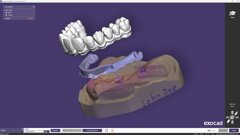RIYADH, Saudi Arabia: Oral cancer constitutes a major front in the global fight against non-communicable diseases, and heightened public awareness of risk factors and cancer types is fundamental to improving treatment outcomes. Underscoring the pronounced regional differences at play, researchers in Saudi Arabia, Syria and Australia have highlighted a notable lack of oral cancer awareness among populations in the Middle East and North Africa. According to the authors, the study’s findings emphasise the vital role dental professionals play in enhancing public awareness of oral cancer through targeted educational initiatives.
Previous research has identified a concerning increase in the global prevalence of oral cancer. Based on global data from the International Agency for Research on Cancer publication Cancer Incidence in Five Continents, a 2016 study found that oral cancer accounted for 3.8% of global cancer cases in 2012 and that demographic changes were expected to fuel a 62.0% increase in incidence by 2035.
Aiming to assess awareness of risk factors, clinical signs, symptoms and preventive measures in individuals in the Middle East and North Africa region, the study surveyed 4,197 adults across Saudi Arabia, Syria, Egypt, Jordan, Lebanon, Iraq, Sudan, Morocco, Algeria, Yemen, the UAE, Qatar and Oman.
Among those surveyed, fewer than half were able to recognise the clinical signs of oral cancer, around one-third could list established risk factors and just over half were aware of recommended protective measures. Only about one in three respondents displayed good overall knowledge of risk factors, although roughly three-quarters correctly cited tobacco use and alcohol consumption. Younger adults, residents of upper-middle- and high-income countries, and participants who had never used smokeless tobacco exhibited the highest levels of awareness. Knowledge of human papillomavirus as a contributory factor was particularly limited: just over a quarter of respondents recognised its prevailing link with the disease. Encouragingly, respondents who had received information about oral cancer from dentists showed markedly better awareness of the virus and the risks associated with it.
Sex and economic status were also found to influence awareness; female participants and those from upper-middle- and high-income countries exhibiting a greater understanding of signs, symptoms and preventive strategies. The higher awareness displayed by women was attributed to potentially greater levels of health consciousness and exposure to health education through media platforms. The authors suggested that targeted awareness initiatives designed to reflect sex- and country-specific needs and actively involving dental teams may help to improve human papillomavirus vaccination uptake as well as oral cancer detection and survival rates.
Describing the lack of awareness as concerning, the authors concluded that the results “underscore the crucial role of dentists in increasing awareness and educating the public about oral cancer”.
The study, titled “Public awareness and knowledge of oral cancer in 13 Middle Eastern and North African countries”, was published online on 6 March 2025 in JAMA Network Open.
Topics:
Tags:
CHELMSFORD, England: The public-facing nature of dentistry has led to clinicians becoming increasingly involved in caring for patients’ systemic health, ...
BURNABY, Canada: Poor oral health has been contributing to a global silent epidemic that countries have been striving to combat for decades. Based on data ...
BUFFALO, N.Y., US: Research has shown that smoking cannabis can be detrimental to overall health and can have adverse effects on the lungs, heart and brain....
NEW DELHI, India: While the effects of climate change on general health are well documented, its impact on oral health remains less explored. A new scoping ...
HONG KONG: Oral cancer remains a significant global health concern, highlighting the urgent need to strengthen prevention efforts and promote early ...
VIENNA, Austria: Next week, a special session at EuroPerio11 will highlight recent global developments shaping the future of oral health policy. Set against...
Live webinar
Tue. 3 March 2026
11:00 am EST (New York)
Dr. Omar Lugo Cirujano Maxilofacial
Live webinar
Tue. 3 March 2026
8:00 pm EST (New York)
Dr. Vasiliki Maseli DDS, MS, EdM
Live webinar
Wed. 4 March 2026
12:00 pm EST (New York)
Munther Sulieman LDS RCS (Eng) BDS (Lond) MSc PhD
Live webinar
Wed. 4 March 2026
1:00 pm EST (New York)
Live webinar
Fri. 6 March 2026
3:00 am EST (New York)
Live webinar
Tue. 10 March 2026
4:00 am EST (New York)
Assoc. Prof. Aaron Davis, Prof. Sarah Baker
Live webinar
Tue. 10 March 2026
8:00 pm EST (New York)
Dr. Vasiliki Maseli DDS, MS, EdM



 Austria / Österreich
Austria / Österreich
 Bosnia and Herzegovina / Босна и Херцеговина
Bosnia and Herzegovina / Босна и Херцеговина
 Bulgaria / България
Bulgaria / България
 Croatia / Hrvatska
Croatia / Hrvatska
 Czech Republic & Slovakia / Česká republika & Slovensko
Czech Republic & Slovakia / Česká republika & Slovensko
 France / France
France / France
 Germany / Deutschland
Germany / Deutschland
 Greece / ΕΛΛΑΔΑ
Greece / ΕΛΛΑΔΑ
 Hungary / Hungary
Hungary / Hungary
 Italy / Italia
Italy / Italia
 Netherlands / Nederland
Netherlands / Nederland
 Nordic / Nordic
Nordic / Nordic
 Poland / Polska
Poland / Polska
 Portugal / Portugal
Portugal / Portugal
 Romania & Moldova / România & Moldova
Romania & Moldova / România & Moldova
 Slovenia / Slovenija
Slovenia / Slovenija
 Serbia & Montenegro / Србија и Црна Гора
Serbia & Montenegro / Србија и Црна Гора
 Spain / España
Spain / España
 Switzerland / Schweiz
Switzerland / Schweiz
 Turkey / Türkiye
Turkey / Türkiye
 UK & Ireland / UK & Ireland
UK & Ireland / UK & Ireland
 Brazil / Brasil
Brazil / Brasil
 Canada / Canada
Canada / Canada
 Latin America / Latinoamérica
Latin America / Latinoamérica
 USA / USA
USA / USA
 China / 中国
China / 中国
 India / भारत गणराज्य
India / भारत गणराज्य
 Pakistan / Pākistān
Pakistan / Pākistān
 Vietnam / Việt Nam
Vietnam / Việt Nam
 ASEAN / ASEAN
ASEAN / ASEAN
 Israel / מְדִינַת יִשְׂרָאֵל
Israel / מְדִינַת יִשְׂרָאֵל
 Algeria, Morocco & Tunisia / الجزائر والمغرب وتونس
Algeria, Morocco & Tunisia / الجزائر والمغرب وتونس
 Middle East / Middle East
Middle East / Middle East







































To post a reply please login or register